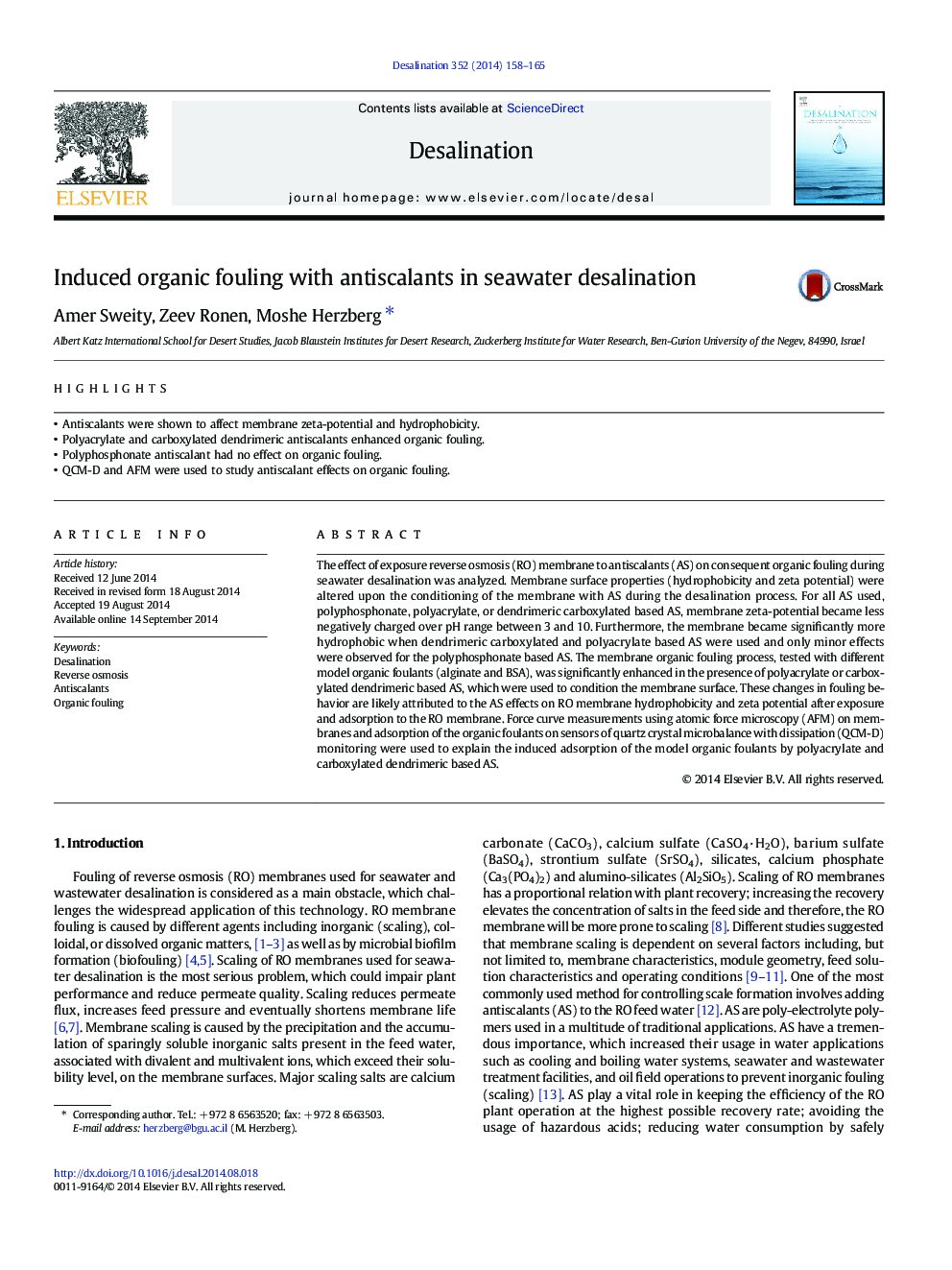| Article ID | Journal | Published Year | Pages | File Type |
|---|---|---|---|---|
| 623420 | Desalination | 2014 | 8 Pages |
•Antiscalants were shown to affect membrane zeta-potential and hydrophobicity.•Polyacrylate and carboxylated dendrimeric antiscalants enhanced organic fouling.•Polyphosphonate antiscalant had no effect on organic fouling.•QCM-D and AFM were used to study antiscalant effects on organic fouling.
The effect of exposure reverse osmosis (RO) membrane to antiscalants (AS) on consequent organic fouling during seawater desalination was analyzed. Membrane surface properties (hydrophobicity and zeta potential) were altered upon the conditioning of the membrane with AS during the desalination process. For all AS used, polyphosphonate, polyacrylate, or dendrimeric carboxylated based AS, membrane zeta-potential became less negatively charged over pH range between 3 and 10. Furthermore, the membrane became significantly more hydrophobic when dendrimeric carboxylated and polyacrylate based AS were used and only minor effects were observed for the polyphosphonate based AS. The membrane organic fouling process, tested with different model organic foulants (alginate and BSA), was significantly enhanced in the presence of polyacrylate or carboxylated dendrimeric based AS, which were used to condition the membrane surface. These changes in fouling behavior are likely attributed to the AS effects on RO membrane hydrophobicity and zeta potential after exposure and adsorption to the RO membrane. Force curve measurements using atomic force microscopy (AFM) on membranes and adsorption of the organic foulants on sensors of quartz crystal microbalance with dissipation (QCM-D) monitoring were used to explain the induced adsorption of the model organic foulants by polyacrylate and carboxylated dendrimeric based AS.
